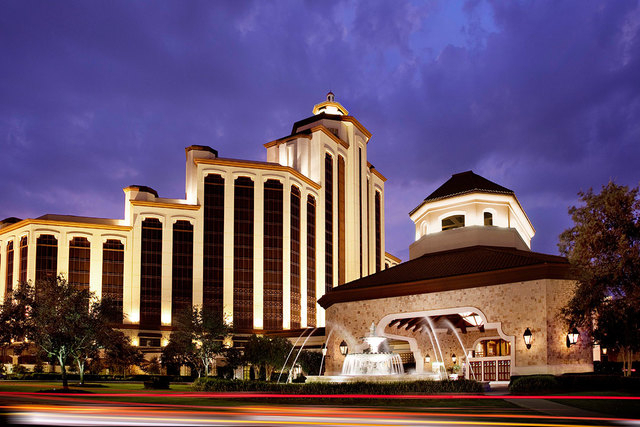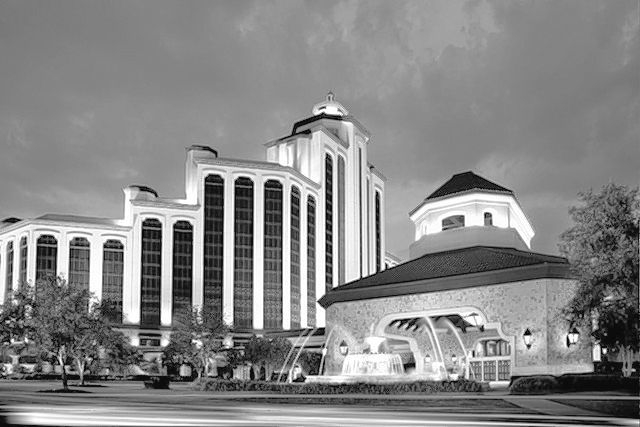Regional gaming operators hope winter’s thaw will nurture warmer financial figures


Winter’s long grip on the Midwest and other parts of the U.S. is finally subsiding.
But even as the snow melts, regional gaming operators might have to wait for their bottom lines to warm up.
Weather issues kept casino patrons at home in several states where companies such as Penn National Gaming, Isle of Capri Casinos, Pinnacle Entertainment and Boyd Gaming Corp. derive the bulk of their quarterly revenue.
December and January figures were new monthly lows in many markets. In February, gaming results declined 5 percent according to an analysis of regional casino jurisdictions by Macquire Securities gaming analyst Chad Beynon.
Indiana, Missouri, Illinois and Michigan suffered through their sixth consecutive month of gaming revenue declines.
Beynon said the first results from March were also deflating.
Slot machine revenue in Pennsylvania was off 6 percent in March. The state’s largest casino, Philadelphia’s Parx Casino and Racing, saw its slot revenue fall 8.5 percent.
“Looking forward, it seems that we will have to wait a bit longer to see trends turn materially positive,” Beynon told investors. “It appears that weather will again be a factor in March; thus, we don’t foresee year-over-year growth until April or May.”
Weather wasn’t cited as an issue in March when Caesars Entertainment Corp. said it was closing Harrah’s Tunica on June 2. The casino is the largest resort in the Northern Mississippi gaming market that has 10 casinos, three of which are owned by Caesars.
Harrah’s Tunica was unprofitable for several years in a market that draws customers from nearby Memphis, Tenn., which is 41 miles to the north.
According to an analysis by Bloomberg News, gaming revenue from Tunica’s 10 casinos fell to $738 million in 2013 from $1.2 billion in 2006.
“There’s just too much supply in that market,” Caesars Central Markets Division President John Payne told Bloomberg.
Several analysts said regional gaming isn’t a complete loss for investors despite recent Wall Street numbers.
Stock prices from the regional gaming sector have slumped in recent weeks. Shares of Las Vegas-based Pinnacle, for example, declined 11 percent on the New York Stock Exchange over the last two weeks of March.
Beynon said that downward trend created a buying opportunity for investors.
Pinnacle, which doubled in size last year after acquiring Ameristar Casinos for $2.8 billion, is the strongest investment story among the regional operators, Beynon said.
Pinnacle’s leverage — a debt versus cash flow comparison — is changing in the company’s favor.
On April 1, Pinnacle completed its $260 million sale of Lumiere Place in St. Louis to Tropicana Entertainment. The deal to sell a Lake Charles, La., casino development to Golden Nugget should be finalized by the end of June. Beynon said the deals will reduce the company’s leverage from 6.5-times over cash flow, to 3.5 or 4-times over cash flow.
“We believe this is the most important reason to own Pinnacle,” Beynon said.
Both transactions were mandated by the Federal Trade Commission for the Ameristar buyout to be completed.
Meanwhile, Pinnacle’s two Louisiana flagship casinos — L’Auberge Lake Charles and L’Auberge Baton Rouge — bucked the state’s overall gaming revenue decline of 6 percent in February to show increases of 3 percent (Lake Charles) and 8 percent (Baton Rouge).
“Pinnacle has fallen out of favor with some investors,” Beynon said, but he thinks the company’s investment story, which includes $40 million in cost savings through the Ameristar deal, is still worth reading.
But Beynon is not as upbeat about Boyd Gaming.
The company’s stock price jumped in recent weeks after a hedge fund bought a 5 percent stake and fueled speculation of the casino operator spinning off into a real estate investment trust.
In addition to the regional market troubles — Boyd has casinos in Louisiana, Illinois, Indiana, Iowa, Kansas and Mississippi — the company’s Las Vegas casinos and the Borgata in Atlantic City face additional challenges.
Beynon said a REIT conversion “is not that simple” and does not include any REIT valuations in analyzing the company.
He favors Pinnacle.
Credit Suisse gaming analyst Joel Simkins has a different view, however, of Pinnacle.
He said competition in the regional casino universe is only going to increase, especially in Ohio and Louisiana.
Pinnacle is opening a $300 million racetrack casino next month in Cincinnati, having converted the former River Downs into Belterra Park. But Simkins called the market “hypercompetitive.”
Pinnacle’s racetrack casino will compete for customers with Caesars’ Horseshoe Casino Cincinnati, which opened a year ago, other Ohio racetrack casinos and casinos in southern Indiana. The market also draws from Louisville and other northern Kentucky communities.
Simkins said there are only so many customers to draw from in the tri-state region and casino operators “from time to time tend to act irrationally in terms of promotional spend as they ramp local player databases.”
Lake Charles will also get competitive when Golden Nugget opens next door to L’Auberge later this year. Golden Nugget Casinos — which include properties in Las Vegas, Laughlin, Atlantic City and Biloxi, Miss. — is owned by Houston-based Landry’s.
Company CEO Tilman Fertitta plans to target the home city of his privately held company. Houston, which is 143 miles west of Lake Charles, is the key feeder market into the gaming community and will give L’Auberge a highly motivated rival.
“We are increasingly cautious about this market,” Simkins said.
Howard Stutz’s Inside Gaming column appears Wednesdays and Sundays. He can be reached at hstutz@reviewjournal.com or 702-477-3871. Follow @howardstutz on Twitter.












